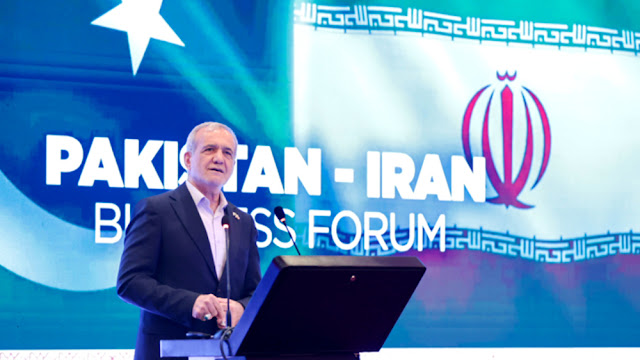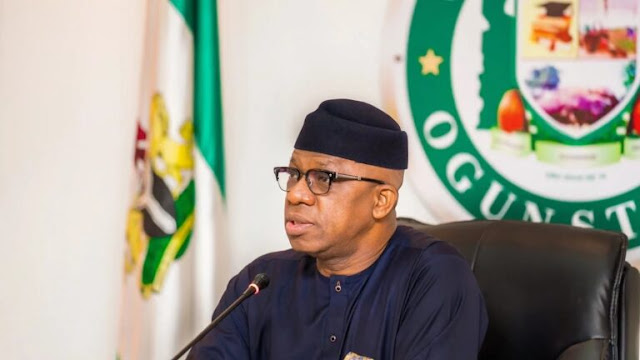In a significant display of regional solidarity, Iranian President Masoud Pezeshkian has expressed Iran’s readiness to collaborate with Pakistan in delivering humanitarian aid to address the catastrophic flooding that has ravaged Pakistan’s eastern province of Punjab. The floods, described as the worst in the region in four decades, have caused widespread destruction, displacing hundreds of thousands and claiming numerous lives.
Iranian President Masoud Pezeshkian
Iranian President Masoud Pezeshkian
During a phone conversation on Friday, August 29, 2025, with Pakistani Prime Minister Muhammad Shehbaz Sharif, President Pezeshkian conveyed Iran’s deep sympathy and commitment to supporting Pakistan during this crisis, underscoring the strong historical and fraternal ties between the two nations.
The Humanitarian Crisis in Punjab
The flooding in Punjab, which began on Monday, August 25, 2025, was triggered by an extraordinary deluge of rainfall compounded by sudden water releases from Indian dams on the Sutlej, Chenab, and Ravi rivers. This convergence of natural and human-induced factors has led to one of the most severe flooding events in Punjab’s recent history, overwhelming local infrastructure and displacing entire communities. According to Irfan Ali Kathi, Director General of the Punjab Disaster Management Authority (PDMA), nearly 300,000 people have been evacuated from flood-affected areas in Punjab alone. The floods have claimed 20 lives in the province this week, contributing to a nationwide death toll of 820 since flash floods began in late June 2025.
The scale of the disaster has placed immense pressure on Pakistan’s disaster response mechanisms. Homes, farmland, and critical infrastructure have been submerged or destroyed, leaving hundreds of thousands without shelter, food, or clean water. The sudden release of water from Indian dams has exacerbated the situation, raising questions about cross-border water management and the need for improved regional cooperation to mitigate such disasters. The PDMA and other agencies are working tirelessly to provide relief, but the magnitude of the crisis has underscored the need for international support, prompting Iran’s swift offer of assistance.
Iran-Pakistan Solidarity
During the Friday phone call, President Pezeshkian emphasized the deep historical bonds and fraternal relations between Iran and Pakistan, which have been strengthened through years of mutual cooperation and shared cultural ties. He expressed Iran’s solidarity with the Pakistani government and people, offering condolences for the lives lost and acknowledging the immense suffering caused by the floods. Pezeshkian highlighted the importance of standing together in times of crisis, stating that Iran is prepared to provide any form of humanitarian aid to alleviate the plight of those affected in Punjab and beyond.
The Iranian president also took the opportunity to thank Pakistan for the warm hospitality and productive discussions during his recent visit to Islamabad in early August 2025. That visit, which focused on strengthening bilateral ties and exploring avenues for economic and security cooperation, laid the groundwork for the current dialogue on humanitarian collaboration. Pezeshkian’s remarks underscored the importance of building on these ties to address immediate challenges, such as the flooding crisis, while fostering long-term partnerships.
Prime Minister Sharif reciprocated the sentiment, expressing gratitude for Iran’s gesture of solidarity during what he described as an “hour of pain and suffering.” He emphasized the depth of friendship between Tehran and Islamabad, noting that both nations have consistently supported each other during difficult times. Sharif’s remarks reflected a shared commitment to mutual aid, recalling past instances where Iran and Pakistan have stood side by side in the face of adversity. He also requested that President Pezeshkian convey his warm regards and good wishes to Ayatollah Seyyed Ali Khamenei, Leader of the Islamic Revolution, and the Iranian people, further reinforcing the personal and diplomatic bonds between the two countries.
A Call for Regional Cooperation
The conversation between Pezeshkian and Sharif also touched on the broader implications of the flooding crisis, particularly the role of regional dynamics in exacerbating the disaster. The sudden release of water from Indian dams has sparked concerns about the need for better coordination and communication among neighboring countries to prevent such incidents. While the immediate focus remains on providing relief to affected communities, the crisis has highlighted the importance of regional mechanisms to manage shared water resources and address climate-related challenges.
The floods in Punjab are part of a broader pattern of extreme weather events in Pakistan, which has faced recurring flash floods and other climate-induced disasters in recent years. Since late June 2025, flash floods across the country have claimed over 820 lives, with Punjab bearing the brunt of the latest wave. The increasing frequency and intensity of such events have been attributed to climate change, which has led to erratic rainfall patterns and heightened vulnerability in low-lying areas. For Pakistan, a country already grappling with economic challenges and internal security concerns, the floods represent a multifaceted crisis that demands both immediate action and long-term planning.
Iran’s offer of humanitarian aid aligns with its broader foreign policy objectives of fostering regional solidarity and supporting Muslim-majority nations in times of need. The pledge to cooperate with Pakistan on delivering aid reflects Tehran’s commitment to playing a constructive role in addressing regional challenges, from humanitarian crises to economic development. By offering assistance, Iran is not only providing practical support but also reinforcing its position as a reliable partner in the region.
Planned Discussions at the SCO Summit
A key outcome of the phone call was the agreement between President Pezeshkian and Prime Minister Sharif to hold a meeting on the sidelines of the upcoming Shanghai Cooperation Organization (SCO) Summit in Tianjin, China. The SCO, a regional intergovernmental organization focused on political, economic, and security cooperation, provides a platform for member states to address shared challenges and explore collaborative solutions. The planned meeting between the Iranian and Pakistani leaders will focus on bilateral and multilateral agreements, with the current flooding crisis likely to feature prominently on the agenda.
The SCO Summit offers an opportunity for Iran and Pakistan to deepen their partnership and coordinate efforts on humanitarian aid, disaster response, and regional stability. Both countries are active members of the SCO, and their collaboration within this framework could pave the way for broader regional initiatives to address climate change, water management, and other pressing issues. The meeting will also allow the leaders to build on the momentum of Pezeshkian’s August visit to Pakistan, further solidifying the strategic partnership between Tehran and Islamabad.
Historical Context of Iran-Pakistan Relations
The relationship between Iran and Pakistan is rooted in a shared history, cultural ties, and mutual interests. As neighboring countries with significant Muslim populations, both nations have cultivated strong diplomatic and economic ties over the decades. Their cooperation spans various domains, including trade, energy, and security, with initiatives such as the Iran-Pakistan gas pipeline project symbolizing their commitment to economic integration. Despite occasional differences, particularly on regional security issues, Iran and Pakistan have maintained a relationship characterized by mutual respect and collaboration.
The current crisis in Punjab provides an opportunity for both countries to demonstrate the strength of their partnership. Iran’s swift response to the flooding disaster reflects its recognition of Pakistan’s strategic importance and the need to support a key ally during a time of crisis. For Pakistan, Iran’s offer of aid is a welcome gesture that reinforces the importance of regional solidarity in addressing humanitarian challenges.
The Broader Humanitarian Challenge
The floods in Punjab are a stark reminder of the growing impact of climate change on vulnerable regions. Pakistan, despite contributing minimally to global greenhouse gas emissions, is among the countries most affected by climate-induced disasters. The recurring floods, coupled with other challenges such as heatwaves and droughts, have strained the country’s resources and highlighted the need for international support. The displacement of nearly 300,000 people in Punjab alone underscores the scale of the humanitarian crisis, with thousands of families in urgent need of shelter, food, medical care, and clean water.
Iran’s pledge to assist Pakistan aligns with broader international efforts to address the crisis. The United Nations and various humanitarian organizations have called for urgent aid to support flood-affected communities, emphasizing the need for coordinated action to prevent further loss of life. The collaboration between Iran and Pakistan could serve as a model for regional cooperation in disaster response, demonstrating how neighboring countries can work together to address shared challenges.
Conclusion
The phone conversation between President Masoud Pezeshkian and Prime Minister Muhammad Shehbaz Sharif on August 29, 2025, marks a significant moment in Iran-Pakistan relations, highlighting the depth of their friendship and commitment to mutual support. Iran’s offer of humanitarian aid to address the devastating floods in Punjab reflects its solidarity with Pakistan during a time of immense suffering. The crisis, which has displaced nearly 300,000 people and contributed to a nationwide death toll of 820 since June, underscores the urgent need for international cooperation to alleviate the humanitarian emergency.
The agreement to discuss bilateral and multilateral cooperation at the upcoming SCO Summit in Tianjin signals a forward-looking approach to addressing not only the immediate crisis but also the broader challenges facing the region. By working together, Iran and Pakistan can set an example of regional solidarity, demonstrating the power of collective action in the face of adversity. As the people of Punjab grapple with the aftermath of the worst floods in four decades, the support of allies like Iran offers hope for recovery and resilience in the face of an increasingly unpredictable climate.






